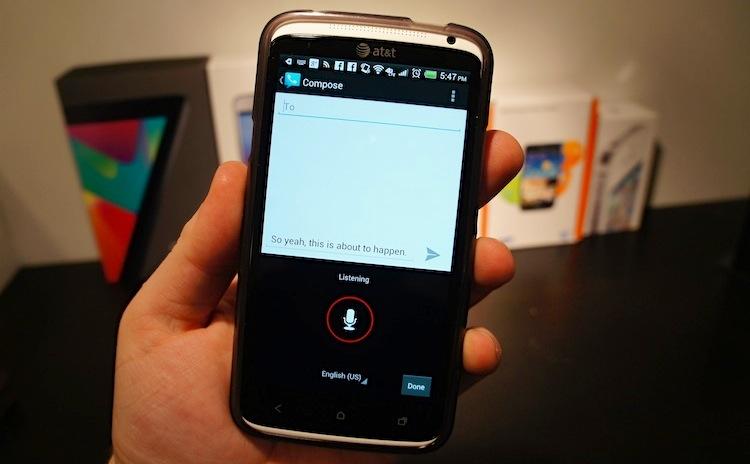
On the last Sunday in July, on a tiresome, hour-long drive home, what I thought was a brilliant idea crossed my mind. I had spent the better part of five months devising a plan for a similar (but different) challenge to what Aaron and Sydney had done with physical devices. And finally, out of nowhere, it hit me. I wanted to stick to software and put a week's worth of my smartphone text entry in the hands of mobile dictation software, for better or for worse.
And, well, these three pieces should sum up how the week went pretty thoroughly.
In the event you're too lazy to read the progress of my Voice Input Challenge, I'll sum it up for you. It was a very long and painful week, chock-full of headaches and other frustrations. But it was a week also full of gaining some very useful knowledge.
Once the challenge ended, I honestly didn't know where I stood with dictation. Throughout the week, I learned its limitations on both the Android and iOS platforms. I also learned exactly what each is great at. And I found out the hard way – to no real surprise – that relying totally on voice input was a terrible idea. It made entering account passwords, emails and Twitter handles extremely onerous and time-consuming.
When I laid down this past Sunday night to finally end the challenge, I honestly didn't know what would happen when I woke up on Monday morning and could type once again. Towards the end I figured I would probably spend a couple days recuperating from the week-long torment. But I had no clue whether I would continue to use dictation in due time, or if I had gotten a lifetime's worth in no more than a week. I wasn't sure if I would willfully continue to use voice input, what the extent of my use would be or if I would abandon it forever.
Prior to the challenge, I would estimate that roughly five percent or less of my mobile text entry was done using dictation. I would consult Siri from time to time, but it was hardly ever to dictate a text message or search query. Mainly, I would hold the home button on the iPhone and simply say, "Weather." Nothing too fancy. And I can only recall a handful of times I have ever dictated text messages before the challenge took place – that goes for both iOS and Android.
Since the end of the challenge, however, I have found myself consulting voice search and speaking some of my text messages quite frequently … without second thought. I can think of at least eight times just yesterday that I fired up Google Voice Search and verbally asked the almighty search engine a question. And there have been countless times that I have immediately tapped the dictation button without even considering typing out a message instead.
What's more is that even when totally conscious of my decision to speak a text message, I don't stop myself. I just go with it.
While dictation has its shortcomings, it also comes with a laundry list of benefits – one of those being speed. Something I (briefly) noted during the challenge was how much faster than typing dictation could be, especially for short, simple messages. Speaking a short sentence may only take a few seconds, whereas typing it out might take upwards of a minute. Even with having to edit a transcribed message, it can often be faster to speak your text rather than type it out. Not to mention, it only requires a single hand for use, which makes it extremely convenient and useful in a handful of different scenarios.
(Update: As a commenter pointed out, I would have to be a very slow texter for a "short sentence" to take "upwards of a minute. Of course, I'm not very slow at texting; I'm actually quite fast. But my point was that, in general, people speak faster than they type – even when you have to pause to pronounce punctuation. Maybe "upwards of a minute" was a bit of an overstatement.)
My biggest hurdle during the challenge, however, was that I was not allowed to edit or tweak the text as I would be able to in normal use. Instead, I had to go back and edit sentences with even more dictation. This, as you might assume, was very frustrating. That said, now having the ability to use both dictation and soft keyboard input has made for quite the zippy and powerful combination.
What I have been primarily doing since the end of the challenge is speaking the main body of a text and going back and adding proper punctuation or capitalization and editing out any mishaps or typos using the keyboard. I would estimate that dictation has accounted for no less than 40 percent of my text entry over the last four days. Whether that number will stay that high is doubtful – I'm still getting over the habit of hitting the dictation button every time the keyboard pops up. But one thing is for sure, I will definitely be using dictation more than I did prior to the challenge. And who knows, I may even continue using it as much as I am now for the foreseeable future.
Privacy aside, it's one of those irreplaceable features I'm slowly beginning to love.